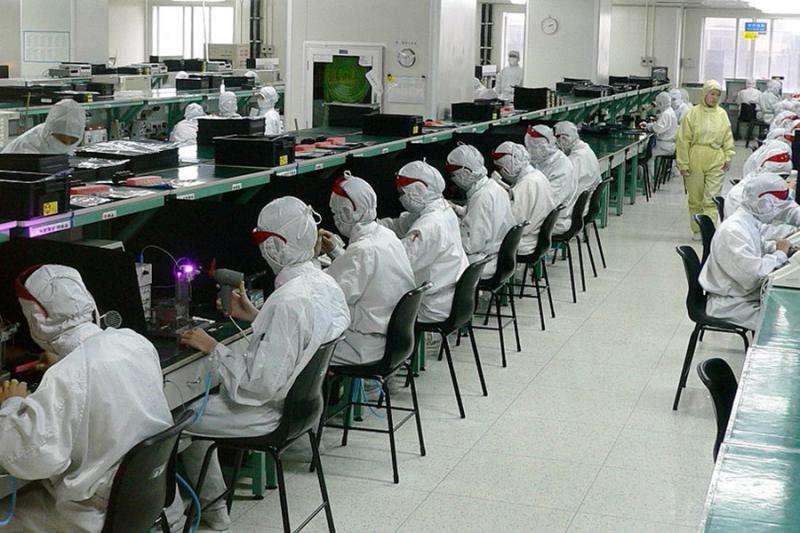Occupational suicide—when work kills the will to live

Occupational suicide is hugely under-researched but the workplace has a vital role in building bonds that help keep people well and safe, a group of management researchers say in a new paper.
"That work can kill the will to live is a fundamental ethical problem that we must attend to," says co-author Professor Stewart Clegg, of UTS Business School.
Work is a "crucial inclusion mechanism", the researchers say in the paper, while also noting the dangers for people who are too invested in their work.
"Creating organisations where solidarity is expressed in a healthy, functional way is imperative," says Professor Clegg. "We need to understand how to construct compassionate organisations that give people a healthy sense of community."
The World Health Organisation estimates that over 800,000 people die by suicide each year – one person every 40 seconds. Up to 25 times as many again make a suicide attempt.
In Australia more than 2500 people die each year, Suicide Prevention Australia says, and one estimate is that about 17 per cent of those deaths could be work-related.
In their paper Professor Clegg and his co-authors look at two "extreme" examples of occupational suicide – the well-known cases of Foxconn in China and France Telecom in Europe – but draw lessons from them for managers everywhere.
"Foxconn and France Telecom have some features very specific to them, and on the face of it none of these conditions would seem to apply in Australia," says Professor Clegg.
But the example of France Telecom can tell us something about how to better help staff through change, especially when they identify closely with their job or employer.
Workers at the state-owned France Telecom underwent a difficult transition as the group was privatised and renamed Orange in 2004, sparking a major restructuring and the loss of scores of jobs. Some 35 employees killed themselves in subsequent years as job cuts, relocations and reassignments took effect, with these mechanisms used as managerial devices to force changes.
Many of the France Telecom workers may have had expectations of a "job for life", says Professor Clegg, but they had to come to grips with more precarious employment – something that is also a feature of today's increasingly casualised or "gig" economy.
While France Telecom workers had to cope with bonds being broken, Foxconn is an example where workers suffered from a lack of "belonging", the researchers say.
Foxconn is perhaps best known as the subcontractor manufacturing iPhones for Apple. A wave of 14 suicides in 2010 drew media attention to employment practices at its Shenzen plant in China. Deaths continue to be reported even today.
Two factors in particular seemed to be at play, the researchers say. One was "the total institutional nature of life in Foxconn", while the other was authoritarian practices by management.
The young people who left their villages to find employment at the factory worked long hours and extra shifts to send money back home. They were too exhausted to do anything but sleep in between their shifts, in the dormitories where they lived with strangers. In such a total environment with so little space or time for reflection small issues could rapidly become life-consuming problems.
Professor Clegg says these examples tell us that organisations should remember they are not just workplaces but also "human communities".
"When support and care are not communicated, organisations become just machines of production," he says.
Managers should avoid destructive patterns of work, such as excessive pace that leads to unacceptable levels of stress, the researchers say.
"Companies must also ensure their suppliers meet the highest standards of care for their workers," Professor Clegg says. Apple may not have been in direct control of the Foxconn workers but the bargains such companies drive with their suppliers affect the conditions of workers further down their supply chains.
At a higher level, government and regulators should examine, diagnose and discourage dangerous management practice not just because workers deserve protection but also because of the implications for mounting health-care costs.
Identifying acceptable working conditions that should be applied globally also helps create a level playing field in trade, the paper says.
In addition, leaders should be trained to create psychologically safe environments.
"In psychologically safe organisations, an individual's failure or weakness is a collective failure or weakness and workers feel safe to share their vulnerabilities with co-workers," the paper says. "In psychologically safe climates, individuals are also more like to speak up and ring the alarms."
Finally, corporate statements should go beyond words to be reflected in reality, Professor Clegg says, noting that a Foxconn corporate social responsibility report used the word "love" 13 times but showed little of in practice.
Provided by University of Technology, Sydney
















